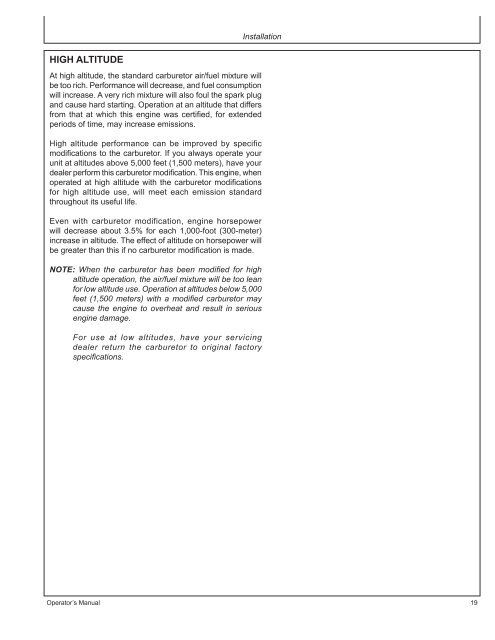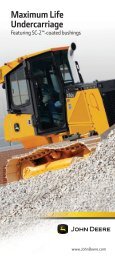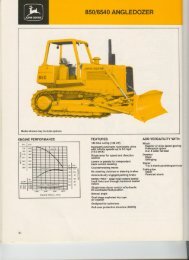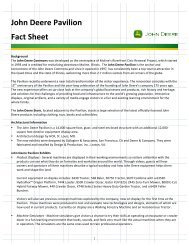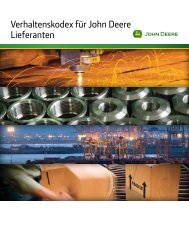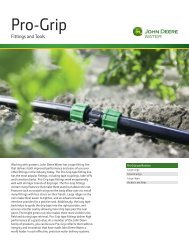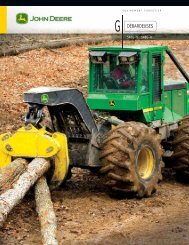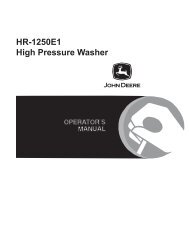Introduction - John Deere
Introduction - John Deere
Introduction - John Deere
You also want an ePaper? Increase the reach of your titles
YUMPU automatically turns print PDFs into web optimized ePapers that Google loves.
HIGH AlTITude<br />
Installation<br />
At high altitude, the standard carburetor air/fuel mixture will<br />
be too rich. Performance will decrease, and fuel consumption<br />
will increase. A very rich mixture will also foul the spark plug<br />
and cause hard starting. Operation at an altitude that differs<br />
from that at which this engine was certified, for extended<br />
periods of time, may increase emissions.<br />
High altitude performance can be improved by specific<br />
modifications to the carburetor. If you always operate your<br />
unit at altitudes above 5,000 feet ( ,500 meters), have your<br />
dealer perform this carburetor modification. This engine, when<br />
operated at high altitude with the carburetor modifications<br />
for high altitude use, will meet each emission standard<br />
throughout its useful life.<br />
Even with carburetor modification, engine horsepower<br />
will decrease about .5% for each ,000-foot ( 00-meter)<br />
increase in altitude. The effect of altitude on horsepower will<br />
be greater than this if no carburetor modification is made.<br />
NOTE: When the carburetor has been modified for high<br />
altitude operation, the air/fuel mixture will be too lean<br />
for low altitude use. Operation at altitudes below 5,000<br />
feet (1,500 meters) with a modified carburetor may<br />
cause the engine to overheat and result in serious<br />
engine damage.<br />
For use at low altitudes, have your servicing<br />
dealer return the carburetor to original factory<br />
specifications.<br />
Operator’s Manual 9


